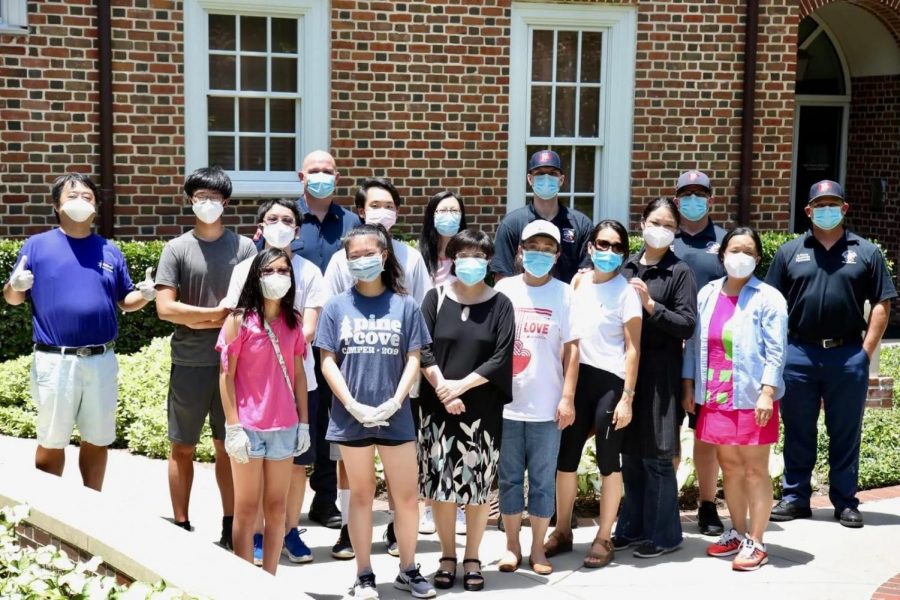Unemployment. Medical expenses. Rent.
In these times of crisis, people are loaded down with problems and duties that they can’t solve on their own. Due to economic instability, even more people are forced to rely on non-profits and charities. But these organizations are struggling to support themselves, let alone the increased wave of people to serve.
An Independent Sector survey of 110 non-profits nationwide revealed 83 percent of the organizations experienced a decline in revenues. If organizations do not have access to the right funding, they can’t properly serve the public.
Their usual donors do not feel as financially secure as they were before the pandemic, and therefore are not comfortable donating money. On top of that, normal fundraising activities such as galas, festivals and markets have to be modified or canceled entirely due to the coronavirus. This dramatically decreases the non-profits’ revenues.
“We have seen a decrease in individual giving. A lot of that giving used to be tied to those fundraising events, so without those events we’ve seen a decrease in that area,” Kendall Brown, the Director of Marketing and Youth Engagement for Family Gateway, said.
However, Family Gateway did see an increase in giving from special funds for organizations affected by coronavirus.
Family Gateway is a non-profit organization that provides stability and life changing support to homeless children and families. Due to the coronavirus, Family Gateway has had to greatly change how it functions.
“We worked very quickly to implement the best practices and guidelines for health and safety from the Centers for Disease Control,” Brown said. “We had to be really creative in our shelter because it is set up kind of like a college dorm. Each family is assigned their own room, but there is a common bath, and we also have common areas for the dining room and the learning center.”
Family Gateway decided to open a second shelter location in a hotel.
“That way the people at shelter two are coming and going more frequently, or are new to us so we are monitoring them for symptoms,” Brown said. “The families in the shelter which has the community bath, those are the ones who aren’t working or have stayed with us longer, so we know that they aren’t coming or going as much. That way we can limit the spread of the virus.”
The added cost of the hotel is just another consequence of operating during the coronavirus. During the shutdown, 23 percent of the organizations that remained operational reported an increased demand for services. While the demand goes up, the ability to provide goes down. Family Gateway has not experienced that increase in numbers just yet.
“Initially, we actually saw a decrease in our typical numbers for that time of year, but we think that was because of the stimulus checks that people received and also from tax refunds,” Brown said. “We know that families are receiving more support than usual because of coronavirus, so our numbers have actually been lower than typical. However we are expecting a very large increase in our numbers as soon as eviction bans are lifted at the end of the year.”
Many people cannot afford to pay rent, but cannot be evicted until the end of the year thanks to eviction bans. While coronavirus is restricting Family Gateway’s services, the Asian Culture & Education Society seems to be expanding.
“There is more change in volunteer opportunities,” Jan Xie, the president of the Asian Culture & Education Society said. “We are helping frontline health workers.”
The organization has been donating supplies to hospitals in the Dallas community.
“We donate masks and face shields, as well as school supplies and clothes,” Xie said.
During coronavirus, the society is emphasizing the “education” part of its name.
“We are offering more virtual events to help with the community,” Xie said. “There will be stuff like public health seminars to teach the Chinese community about how to manage their health during coronavirus, especially for cancer patients and high-risk people. We will have people talk about how exercise builds resistance, and we invited some doctors to come and speak. We have also contacted universities to teach.”
Family Gateway saw a decrease in personal donations, but the Asian Culture & Education Society saw an increase. “We get more donations because the people want to help the coronavirus affected,” Xie said.
A lot of the society’s work now involves delivering the supplies that they collect.
“We spent the whole day driving around giving masks and food to local hospitals, police departments and fire departments in the Dallas area,” senior Jayson Ho said. Ho volunteered with the Asian Culture & Education Society this June.
Xie thinks that handling the coronavirus is the responsibility of the community as a whole.
“Everyone, do your part to contribute to the community, because we all hold hands spiritually,” Xie said.
The coronavirus has greatly impacted the Dallas community.
“We know that a lot of the families we serve are living on the brink, probably paycheck to paycheck, and then something traumatic happens that leads them to homelessness, like a job loss, a hospital bill, or something like the coronavirus,” Brown said. “I think we are going to see the economic repercussions of the coronavirus for years to come.”




